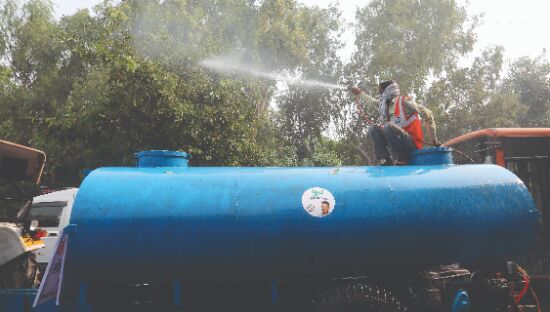Respiratory illnesses rising in Delhi: Docs

New Delhi: According to an analysis by the Delhi Pollution Control Committee (DPCC), people in the national capital breathe the worst air between November 1 and November 15 every year, as unhelpful meteorological conditions trap pollutants coming from local sources and stubble burning in neighbouring states — Punjab and Haryana.
On Saturday, the Delhi government announced closure of physical classes in schools, colleges and other educational institutions for a week from Monday.
All government offices, agencies and autonomous bodies, except those involved in essential services, have been asked to work from home.
No construction and demolition activity is allowed in the capital till November 17, it announced in a desperate effort to contain spiralling air pollution levels.
Doctors say there has been a "30 to 40 per cent increase" in the number of people coming to hospitals with respiratory problems.
"We have observed an increase in the severity of asthma attacks. Those with pre-existing respiratory issues are requiring hospitalisation. These are acute effects of the hazardous air pollution in the city," said Dr Vikas Maurya, head of Pulmonology Department, Fortis Hospital, Shalimar
Bagh.
The hospital has been reporting 25 to 30 cases of respiratory disorders per day. Of these, three to four are of "severe" nature.
Around 50-55 patients with breathing issues are admitted in the hospital at present, he said.
Dr Abhinav Guliani, pulmonologist, Ganga Ram Hospital, said there has been a two to threefold increase in the number of patients with respiratory infections since Diwali.
"We have been witnessing up to 30 patients per week. Normally, we would see around 10 to 20 such patients in a week," he said.
The hospital has been advising elderly patients and those with respiratory diseases to stay at home and step out only if it is absolutely necessary.
Dr Neetu Jain, senior pulmonologist at PSRI Hospital, said they have recorded at least 25 per cent increase in respiratory diseases.
"We have admitted around seven patients, who have been stable in the last one year, after the rise in air pollution. We have also witnessed an uptick in the number of people without any history of respiratory illnesses," she said.



